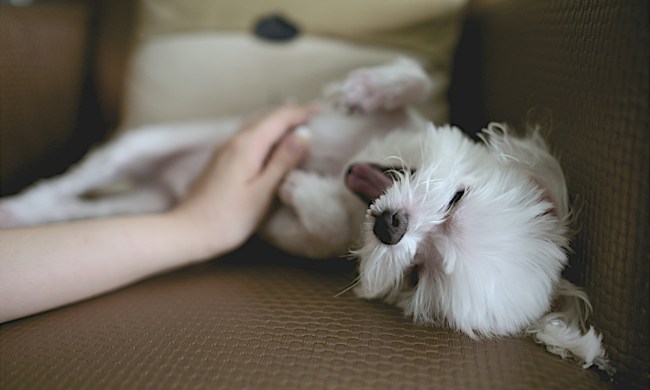As we turn the calendar from December to January, we start thinking about our goals and the changes we’d like to make in the year to come (also known as New Year's resolutions). Mental and physical health repeatedly top the list. You, too, may want to be more active, eat more nutritiously, or nix the doom-scrolling habit you developed in April 2020 and never broke.
The goals are good ones, if not a bit lofty. Not to be the bearers of bad news, but even the best-laid plans don’t always pan out. Studies show that up to 80% of New Year’s resolutions fail. However, you may have a leg up if you have a pup (on goals, not fire hydrants). There’s a body of research out there suggesting that having a dog can help people be more active and engage in other healthy habits.
Here’s how your pup can help you actually keep your New Year’s resolutions.
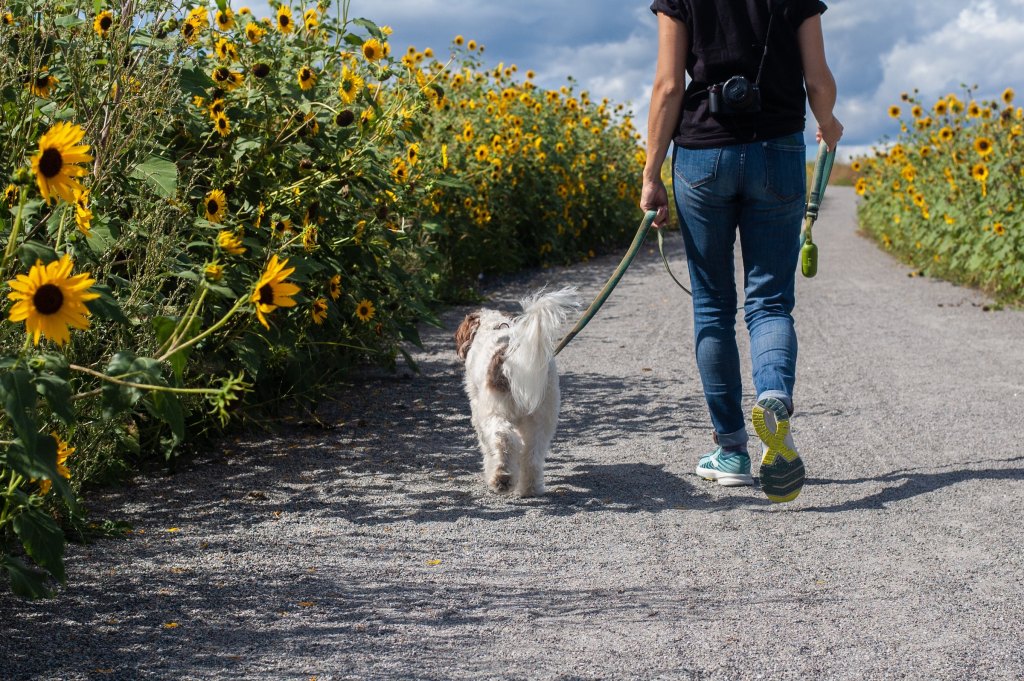
Move more
If you want to get out and move more often this year, consider your dog your secret weapon. One study looked at more than 41,000 people. Some had dogs, others had cats, and some were petless. Researchers found that pup parents walked more for leisure than people with cats or without any pets.
You may think walking your dog “isn’t really exercise,” but don’t discount it. You don’t have to run marathons to get a good amount of physical activity. A 2011 Michigan State University study found that dog walkers were 34% more likely to get the recommended amount of exercise. According to the CDC, that benchmark is 150 minutes of moderate-intensity activity or 75 minutes of vigorous activity each week.
Step 1: Grab a dog leash.
Step 2: Lace up your sneakers.
Step 3: Go for a walk.
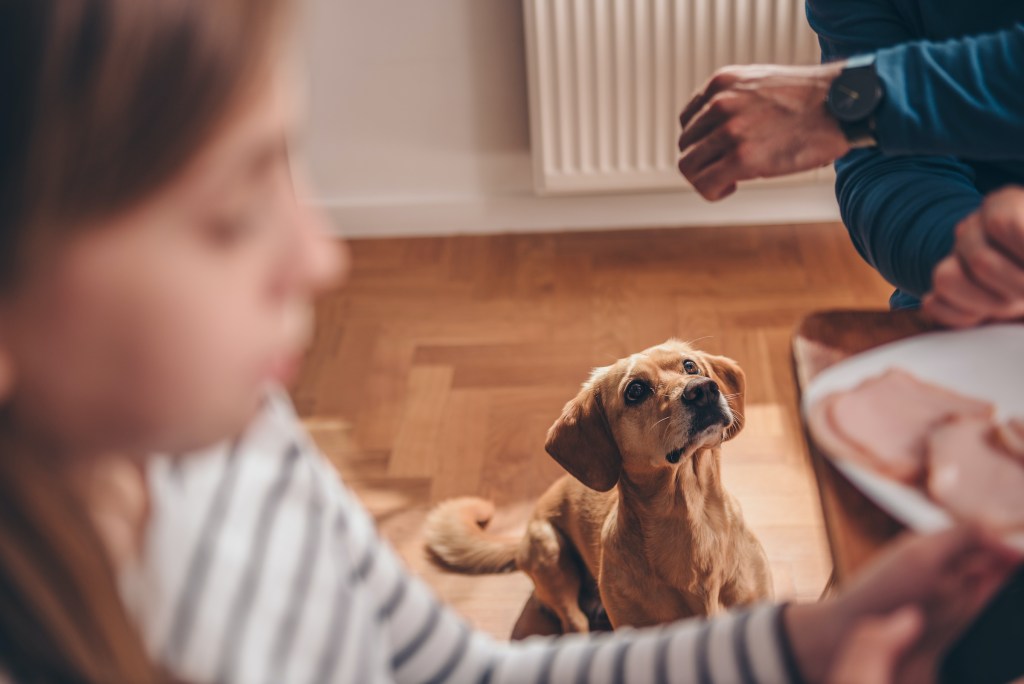
Stay home instead of going out to eat
Going out to eat with human friends is healthy now and then, but doing it too much can do a number on your budget. The food in restaurants isn’t always as nutritious as what you can make at home. If you have a dog waiting for you, you may be less inclined to accept every invite and instead have a healthy balance between meals out and home-cooked ones. As a result, you may notice you maintain a healthier weight and have a thicker wallet.
Step 1: Decline an invite and blame your dog.
Step 2: Find a favorite recipe.
Step 3: Make the meal.
Step 4: Eat (keep in mind which foods you should avoid"accidentally" dropping on the floor.)
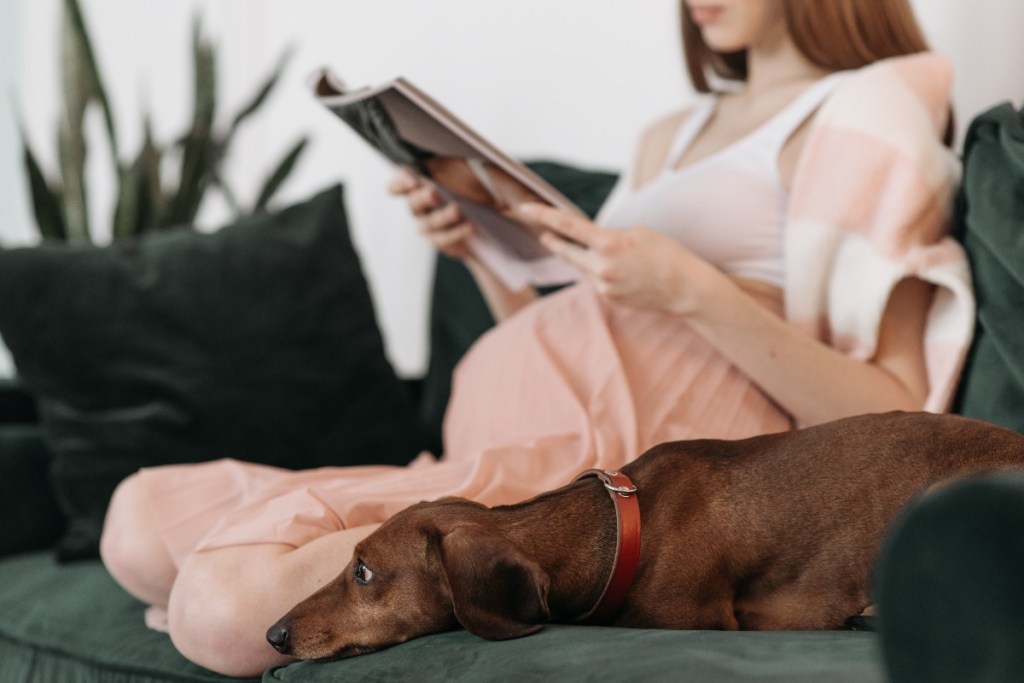
Less screen time
Over the last two years, we’ve used screens to keep in touch with family and friends. That’s not necessarily bad. One study found that adults who use social media were less likely to report psychosocial distress. However, other studies have shown too much screen time can lead to depression and disrupted sleep.
Step 1: Use your furry friend as an excuse to put down your phone and turn off the TV.
Step 2: Enjoy what's right in front of you (your dog).
Step 3: Engage your pup in a rousing game of fetch or tug-of-war
Step 4: Chill on the couch together with Netflix.
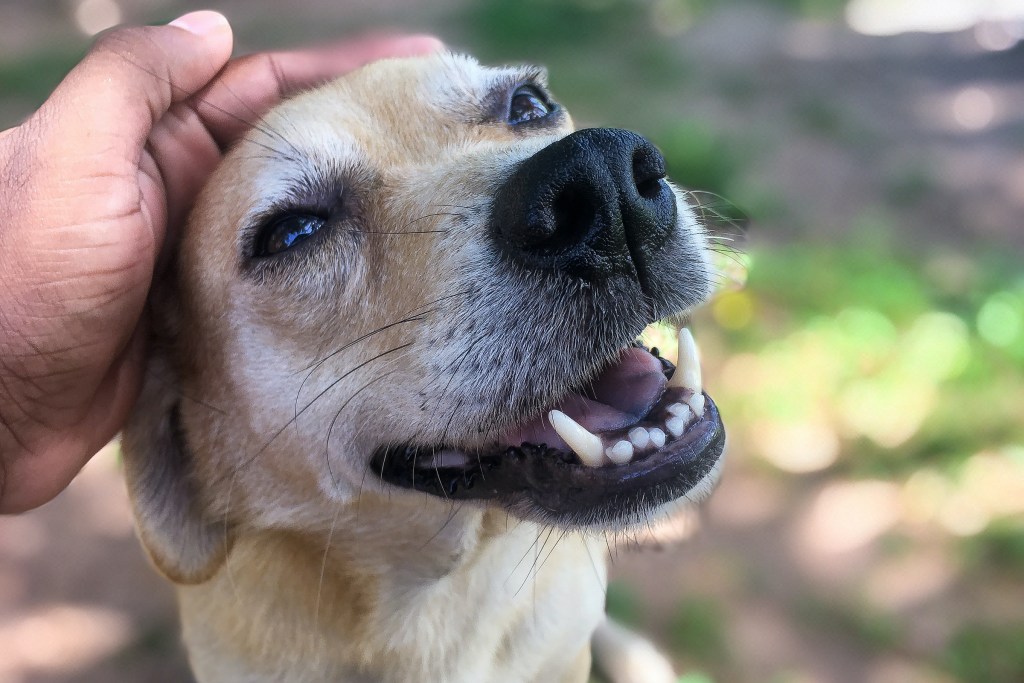
Stress less
It’s hard not to stress with everything going on these days. Your pup can’t solve all the world’s problems, but they may be able to reduce stress. Studies suggest that petting your pup can lower the stress hormone cortisol and raise levels of the happiness-inducing hormone called oxycontin. That’s probably why dogs make such great emotional support animals.
Step 1: Resolve to stress less.
Step 2: Engage in daily snuggle sessions with your dog.
Step 3: Enjoy the win-win. They’ll love it, and so will your body and mind.
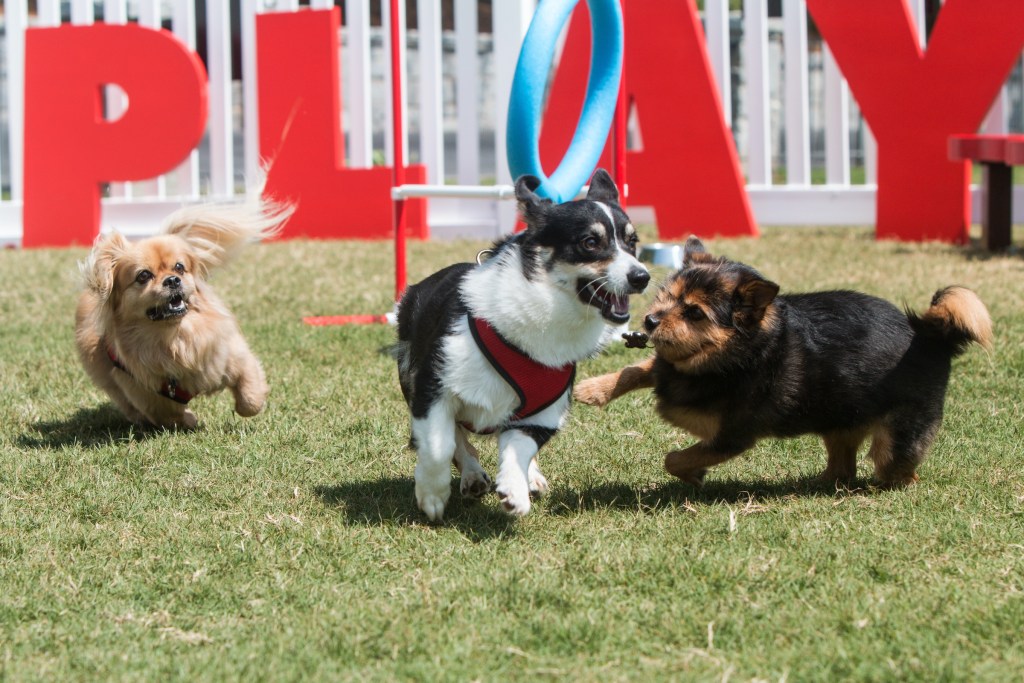
Make new friends
Studies and surveys show that dogs help people feel less lonely. It’s nice to have a built-in best friend who loves you unconditionally. There may be another reason, though: man’s best friend may actually help all humans, regardless of gender, connect with new people. A 2015 study found that dog parents make friends more easily.
Step 1: Head to the dog park.
Step 2: Walk your dog around the black.
Step 3: Meet people organically.
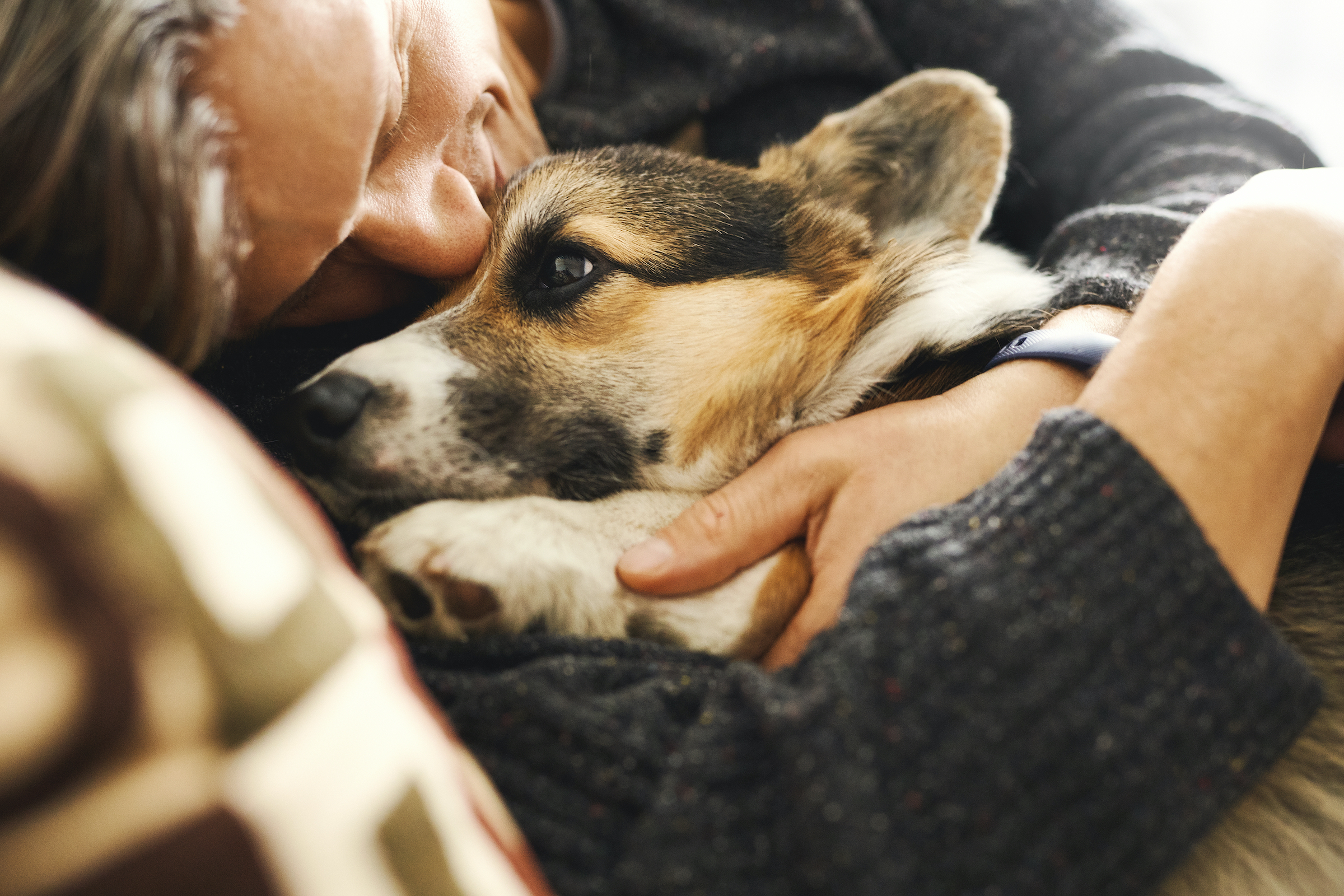
Find healthier ways to cope
Some people report having a dog helped them recover from substance abuse disorders, build trust with humans, and have healthier relationships. If these are some of your goals for the year ahead, your dog may be a great part of your support system. Remember, though, that dogs aren’t cure-alls or a replacement for therapy. If you’re struggling with addiction or depression, reach out to a therapist for help.
Step 1: Work with a mental health provider who specializes in addiction treatment or depression.
Step 2: Consider ways having a dog can help you cope.

Practice patience
Dogs — we love them, but pets can try our patience. Yes, pets can help with mental health, but sometimes, they can do something that actually causes us to feel a bit stressed. From coming home to chewed shoes to training a new puppy, pet parenthood isn't completely sunshine and rainbows. The silver lining? These sticky moments are an opportunity to practice patience.
Step 1: Notice your dog doing something that stresses you out.
Step 2: Take three deep breaths and count to 10.
Step 3: Redirect your dog, and clean up anything (if applicable).
Step 4: Strategize ways to prevent the dirty deed from happening in the future, such as revisiting commands to "leave it" for table scraps that fall on the ground or securing your shoes.
Step 5: Consult a professional dog trainer if you need more assistance.
New year, new goal, same dog? You may be well on your way to maintaining your New Year’s resolutions for once. Numerous studies show that dogs help people exercise more and stress less. They’re way cuter than the latest headlines (which often aren’t cute at all), so they may also help you cut down on screen time. You may also want to stay home more to hang out with them, so you’ll save money and eat more nutritiously by having more home-cooked meals.
People with dogs may also expand their social circles by going to dog parks or simply walking their pups around the neighborhood. The best part of having a dog, though? They’ll love you whether you keep your resolution or not.



